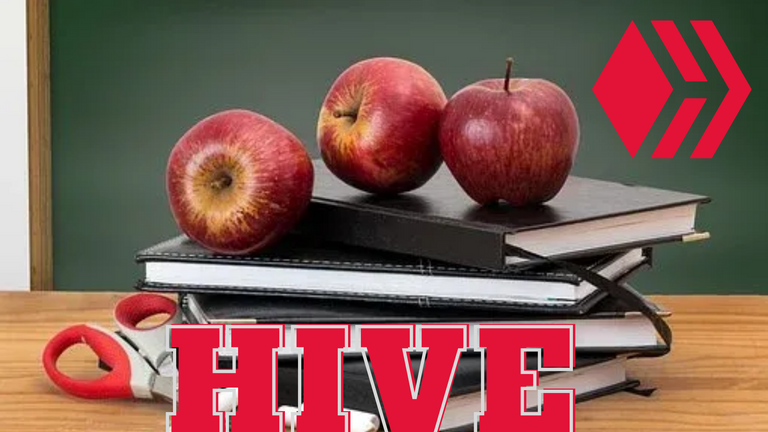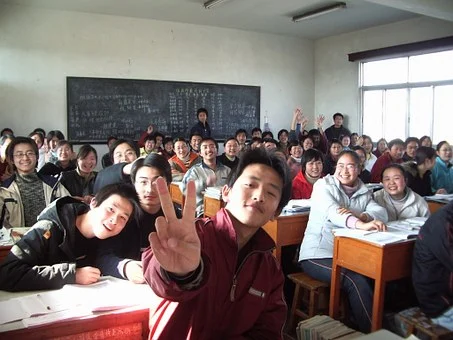
¿Que tal amigos y amigas? Espero que estén muy bien, Hoy veremos la etimología de la palabra alumno y la controversial tergiversación de la misma. Debo admitir que yo caí en esta tergiversación de esta palabra, de hecho, este post iba a estar hecho sobre una montaña de falacias si continuaba con mi idea original. No obstante me gusta que la información que proporciono este respaldada con buenas bases, así que me dispuse a investigar y el resultado me sorprendió y cambio ligeramente la dirección que tomaría este artículo. Sin más preámbulo comencemos.
How are you friends? Today we will see **the etymology of the word alumnus and the controversial misrepresentation of the same ** I must admit that I fell into this misrepresentation of this word, in fact, this post was going to be made on a mountain of fallacies if I continued with my original idea. However I like the information I provide to be backed up with good bases, so I set out to investigate and the result surprised me and slightly changed the direction this article would take. Without further ado, let's begin.
¿ALUMNO = PERSONA “SIN LUZ”?
Primero que nada explicare a que se refiere esto de “persona sin luz”. Desde el inicio de la humanidad civilizada se ha entendido a la ignorancia como la oscuridad que nubla la mente de las personas y al conocimiento como la luz que le permite ver el mundo con plenitud. En pocas palabras Alumno = Persona sin Luz = Ignorante.
Durante mi tiempo en preparatoria cuando me encontraba cursando el 4to año, una compañera le dijo a nuestra profesora de instrucción premilitar. “Pero es que nosotros somos sus alumnos y usted…” Y la profesora la interrumpió y le dijo. “No. Ustedes no son mis alumnos” todos nos quedamos confundidos y entonces prosiguió a aclarar nuestra confusión. “Yo no los considero mis alumnos porque es un término despectivo.” Todos seguíamos confundidos. “Verán ese es un término que se usaba en la antigüedad para describir a una persona sin luces, es decir, un ignorante y yo no los considero ignorantes a ninguno de ustedes.” Todos entendimos sus razones y continuamos con lo que estábamos discutiendo. (Disculpen no recuerdo el contexto, solo lo que es correspondiente con el tema del artículo.)
ALUMNUS = PERSON "WITHOUT LIGHT"?
First of all I will explain what is meant by "person without light ". Since the beginning of civilized humanity, ignorance has been understood as the darkness that clouds people's minds and knowledge as the light that allows them to see the world fully. **In a nutshell Alumnus = Person without Light = Ignorant.
During my time in high school when I was in 4th grade, a classmate said to our pre-military drill teacher. "But we are your alumnus and you..." And the teacher interrupted her and said. "No. You are not my alumnus" we were all confused and then she went on to clear up our confusion. "I don't consider you my alumnus because it's a derogatory term." We were all still confused. "You see that is a term that was used in ancient times to describe an unenlightened person, that is, an ignorant person and I don't consider any of you ignorant." We all understood his reasons and continued with what we were discussing. (Sorry I don't remember the context, only what is relevant to the topic of the article).

ACLARATORIA ETIMOLÓGICA.
Repentinamente recordé esto y pensé esto sería un buen tema para un artículo de hive. Estructure la idea base y cuando me disponía a escribir decidí hacer mi respectiva investigación y descubrí que este “concepto” Esta totalmente errado. El concepto etimológico de esta palabra proviene del latín Alumnus que combina los verbos alo, alere y altum que significan alimentar, hacer crecer; de donde viene el adjetivo altum profundo (Crecido). Y del castellano alimentar. Concluyendo así en que el latín Alumnus significó Crío o Cría y posteriormente paso a significar pupilo, estudiante o alumno.
Seguramente ahora te preguntaras ¿Entonces de donde proviene este falso concepto? Vamos a ello.

ETYMOLOGICAL CLARIFICATION.
Suddenly I remembered this and thought this would be a good topic for a hive article. The etymological concept of this word comes from the Latin Alumnus which combines the verbs alo, alere and altum meaning to feed, to make grow; from which comes the adjective altum profundo (Grown). And from the Spanish feed. Concluding thus in that the Latin Alumnus meant "offspring" and later came to mean pupil, alumnus or pupil.
Surely now you are wondering where does this false concept come from? Let's get to it.

FALSO CONCEPTO DE ALUMNO.
Este falso concepto surge de una construcción errónea del termino A que en griego significa sin (carencia, inexistencia)* y lumno que en latín significa luz. Una construcción indexada al bestiario actual (Diccionario de las bestias). La cual no tiene mérito ya que el griego y el latín son dos lenguas totalmente distintas y de épocas diferentes.
Creo que no estuvo mal de mi parte creer esta falsa concepción. (No del todo pero al menos no difundí esta falacia.) Considerando que estaba en 4to año de preparatoria y quien me lo dijo fue una profesora, pero al menos busque confirmar la veracidad de este concepto. A quienes no les perdono el erróneo uso de estos conceptos es a los profesores, maestros, tutores y educadores en general, ya que antes de difundir una información deberían conocer las fuentes de esta o al menos si es veraz. Y lo digo porque he visto y oído a muchos instructores de cursos, profesores y tutores profesar esto.
FALSE CONCEPT OF PUPIL.
This false concept arises from an erroneous construction of the term A which in Greek means without (lack, nonexistence)* and pupil which in Latin means light. A construction indexed to the current bestiary (Dictionary of beasts). Which has no merit since Greek and Latin are two totally different languages from different times.
I think it was not wrong of me to believe this false conception. (Not entirely but at least I did not spread this fallacy.) Considering that I was in the 4th year of high school and the one who told me was a teacher, but at least I sought to confirm the veracity of this concept. Those who I do not forgive the erroneous use of these concepts are the professors, teachers, tutors and educators in general, because before disseminating information they should know the sources of this or at least if it is true. And I say this because I have seen and heard many course instructors, teachers and tutors profess this.

LA PALABRA ALUMNO NO ES DESPECTIVA.
En conclusión. Si, está bien decirle alumno a un estudiante, lo que no está bien es difundir falacias y contribuir a la desinformación estando en plena era de la información. Donde es muy fácil entrar a Internet y saber que tan cierta es una información o confirmar un concepto. Sobre todo si te dedicas a la enseñanza. Pero ya saben lo que dicen. Cada día se aprende algo nuevo.
THE WORD ALUMNUS IS NOT DEROGATORY.
In conclusion. Yes, it is okay to call alumnus a student, what is not okay is to spread fallacies and contribute to misinformation in this information age. Where it is very easy to go on the Internet and know how true a piece of information is or confirm a concept. Especially if you are a teacher. But you know what they say. You learn something new every day.

¿Y ustedes ya sabían esto? Coméntenme su opinión respecto al tema.
And you already knew this? Let me know what you think about it
GRACIAS POR LEER HASTA EL FINAL.
THANKS FOR READING TO THE END.
Fuentes:Información.
Imágenes sacadas de Pixabay
Traducido por DeepL
Sources: Info.
Images taken from Pixabay
Translated by DeepL
¡Felicidades! Esta publicación obtuvo upvote y fue compartido por @la-colmena, un proyecto de Curación Manual para la comunidad hispana de Hive que cuenta con el respaldo de @curie.
Si te gusta el trabajo que hacemos, te invitamos a darle tu voto a este comentario y a votar como testigo por Curie.
Si quieres saber más sobre nuestro proyecto, acompáñanos en Discord: La Colmena.